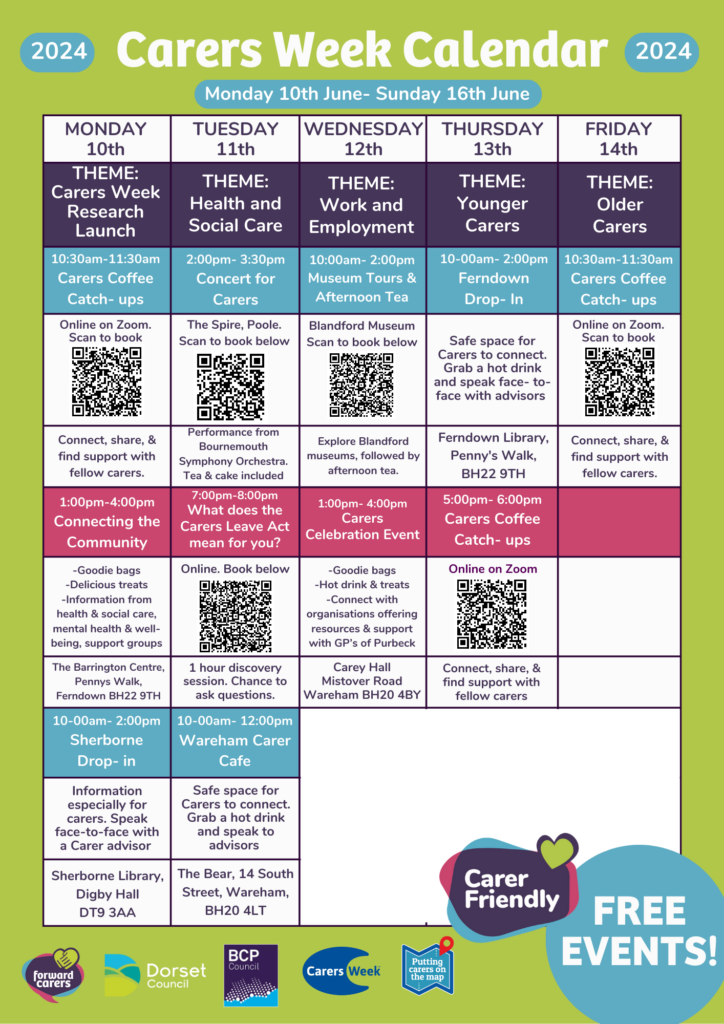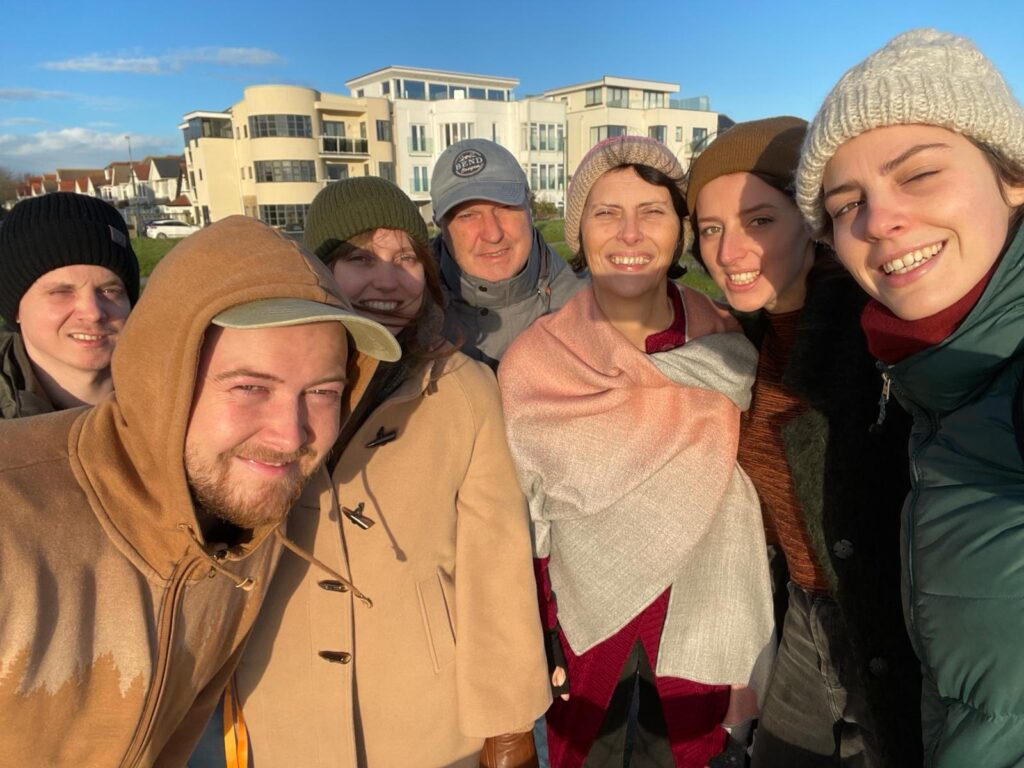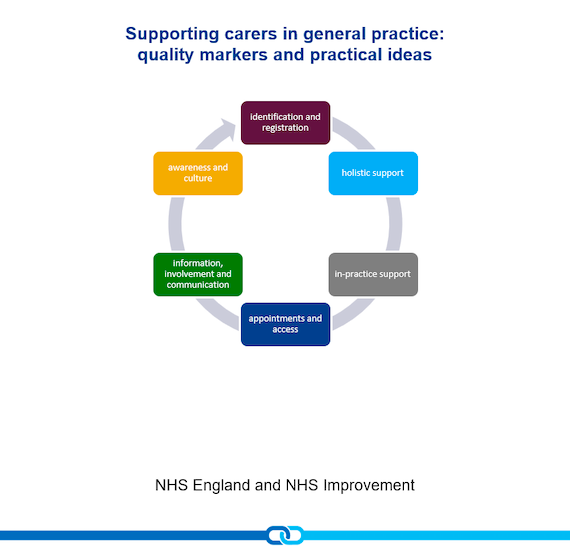At Forward Carers, we understand the vital role that Carers play in our communities. Whether you’re providing care for a loved one or supporting others in need, your experiences and insights are invaluable. That’s why we’re excited to share an important opportunity for you to make your voice heard and help shape the future of support for Carers.
About Carers UK
Carers UK is the dedicated to improving the lives of Carers. They work to provide Carers with the support, advice, and resources they need. From advocacy and campaigning to offering practical help and guidance, Carers UK is committed to making life better for those who dedicate their time and energy to caring for others.
Why Your Input Is Crucial
Carers UK is conducting a comprehensive survey to gather feedback directly from Carers. This survey aims to capture your experiences, challenges, and needs so that Carers UK can better understand and address the issues that matter most to you. Your participation will provide essential data that can influence policy, improve services, and enhance the support available to Carers nationwide.
As we approach a UK General Election, it is vital that we use Carers’ voices to campaign for change from the next UK Government and from Governments in Wales, Scotland and Northern Ireland. We want to hear your experiences of being a Carer in 2024.
How You Can Make a Difference
By taking a few minutes to complete the survey, you’ll be contributing to a larger effort to improve the quality of life for all Carers. Your insights will help shape the initiatives and resources that Carers UK and other organisations develop. This is your chance to have a direct impact on the future of Carer support.
Take the Survey Now
Ready to share your experiences and make a difference? Click the link below to participate in the Carers UK survey. Your feedback is vital, and together, we can create a brighter future for all Carers.
Thank you for your dedication and support. Your voice truly matters, and we appreciate your time and input.
Stay Connected
For more updates and information on how we’re supporting Carers, follow Forward Carers on Facebook, LinkedIn, TikTok and Instagram and join our community. Together, we can make a meaningful difference.
Today marks the start of Carers Week 2024 and the publication of Carers UK’s Carers Week report: No Choice But To Care.
The report shows that 10 million adults – 62% of current and former unpaid Carers – had no choice in taking on their caring role due to a lack of alternative care options, according to analysis of YouGov polling data.
This research revealed that the impact of caring has been more negative than positive for all areas unpaid Carers were asked about, particularly for their
- physical health (53%)
- mental health (63%)
- employment (48%)
- and finances and savings (47%).
The negative impacts as a result of caring were felt most strongly by those who had no choice but to take on an unpaid caring role as well as women and those aged 45-54.
Gender Differences
The report also found that women were more likely than men to say unpaid caring had a ‘very’ negative impact on mental health (27% compared with 19%) and on their job and ability to work (22% compared with 16%).
A higher proportion of women said unpaid caring had a ‘very’ or ‘slightly’ negative impact on their relationships compared with men (42% compared with 30%) and on their physical health compared to men (59% compared with 42%).
Age Differences
Those aged 45 to 54 were most likely to have no choice when taking on an unpaid caring role (70%) and were most likely to say that unpaid caring has had a ‘very’ or ‘slightly’ negative impact on their finances and savings (56%), job and ability to work (64%) and pensions (30%), compared to other age groups.**
Dorothy Cook is an unpaid Carer from Bristol. She stopped working over a decade ago to care for her husband Melvin, who has a rare brain disease. Dorothy said:
“If I had been asked 15 years ago where I saw my life in 2024, I would never have dreamed it would be as a full-time carer. I had started my own business and it was thriving. I worked long hours and it wasn’t always easy. But I will honestly say that being a full-time unpaid carer has been the toughest and most challenging role of all.
“I was forced into giving up my dream life, job, friends, relationships and my physical and mental health suffered. I am financially poorer. I do it because of my love for someone who has found themselves dependent on me. I also have little choice about caring because the system is unable to provide the care my husband needs. It leaves me without enough breaks and the essential support I also need for my own health. I’m often caring 24 hours a day, 7 days a week which is exhausting.”
National Carers Strategy is needed in England and Wales
The report recommends the establishment of a National Carers Strategy, review and reform of social security benefits for Carers and better workplace protections and workplace support for unpaid carers. To ensure Carers’ health and wellbeing is better supported, the report recommends a new duty on the NHS to have regard to unpaid Carers as well as further investment in social care and Carers’ breaks. The report also makes recommendations aimed at employers, public bodies and specific recommendations for the UK nations.
In this General Election year, Carers UK is campaigning for better recognition and commitment for unpaid Carers from all political parties.
An additional YouGov Political Omnibus poll of over 4,200 members of the public showed widespread backing for more support to be given to unpaid Carers. 73% said unpaid Carers should receive more support from the next Government, particularly financial support and investment in social care.
Sign Carers UK’s Open Letter to the Prime Minister
We encourage you to raise your voice in support of Carers in the run up to the General Election on 4 July. Please sign Carers UK’s open letter to the future Prime Minister. You can also write to the local candidates standing in your constituency.
We are thrilled to announce that the Association of Directors of Adult Social Services (ADASS) has recognised our support for unpaid Carers in Dorset and approved us as an example of Great Practice.
ADASS’ Supporting Carers Hub showcases Great Practice and has been created as a resource for social care teams and other organisations working to support unpaid Carers in communities throughout England.
The online Hub resource includes some great practise where teams have been able to share some evidence of the positive impact they’ve had and also great ideas they are just starting to try out.
We are delighted to be included in this useful resource. You can take a look at our entry here.
Watch our video to find out all about our support for Carers who look after someone living in Dorset
As part of National Carers Week, the Bournemouth Symphony Orchestra’s Teatime Trio are performing a special Concert for Carers, celebrating the invaluable contributions made by unpaid Carers to both their families and to the community.
Forward Carers is proud to support this exceptional concert, in partnership with BCP Council, being held by the BSO on Tuesday 11 June 2024 from 2:00pm to 3:30pm at The Spire in Poole. We hope you can join us for a relaxed performance of classical and chamber music alongside familiar arrangements from popular musicals and the silver screen.
Spaces are limited so make sure you book your tickets at Concert for Carers – Bournemouth Symphony Orchestra (bsolive.com) and enjoy the opportunity to unwind and feel valued.
The Teatime Trio are three Bournemouth Symphony Orchestra musicians who frequently perform concerts specifically developed for people living with dementia. Eluned (harp), Owain (flute) and Kate (cello) perform across the southwest and they are excited to be performing for an audience of Carers for the first time.
Tickets cost £6 each, which includes a hot drink and a delicious cake to enjoy whilst socialising with other Carers during the interval.

Carers Week is just around the corner, and it’s time to recognise and celebrate the incredible contributions of unpaid carers in our community. From saving the economy millions to providing essential care for loved ones, Carers play a vital role. This year’s theme, “Putting Carers on the Map,” aims to raise awareness about the challenges they face and ensure better support for their needs.
Forward Carers have come together with some partners from our Carers Card Directory to create these events for you to enjoy!
1. Bournemouth Symphony Orchestra – Concert For Carers
- Date: Tuesday, 11th June
- Time: 2:00 PM
- Cost: £6 (includes tea and cake)
- Details: Join us for a delightful concert by the Bournemouth Symphony Orchestra. Relax, enjoy the music, and connect with fellow Carers. Learn more and book your ticket here: https://bsolive.com/events/concerts-for-carers/
2. What does the Carers Leave Act mean for you as an unpaid working Carer?
- Date: Tuesday, 11th June
- Time: 7:00 – 8:00 PM
- Cost: Free (Online event)
- Details: Explore the implications of the Carers Leave Act and how it affects you as an unpaid working Carer. Register here https://www.eventbrite.co.uk/e/what-does-the-carers-leave-act-mean-for-you-as-an-unpaid-working-carer-tickets-886308782427
3. Blandford Museums Tour with Cream Tea & Luncheon
- Date: Wednesday, 12th June
- Time: 10:00 AM
- Cost: Free (bookable event)
- Details: Discover the rich history of Blandford at the town museum. Enjoy a cream tea and connect with other Carers. Book your spot here https://www.eventbrite.co.uk/e/blandford-museums-tour-with-cream-tea-luncheon-for-unpaid-carers-tickets-906113709497 or if you know someone who is not tech savvy, they can just turn up on the day!
Other Activities
Throughout Carers Week, various events and activities are happening across Dorset. Visit ourdorset.org.uk for a comprehensive program of events. https://ourdorset.org.uk/carers-week-2024/

Take some time out
Come to our events with a friend, family member, with the person you care for, or by yourself. It is totally up for you!
Let’s come together to celebrate the unpaid Carers who make a difference every day. Whether you’re a Carer or know someone who is, these events offer a chance to connect, learn, and enjoy some well-deserved time off.
Remember, you’re not alone. We’re here to support you. 💜
Feel free to customise and share this blog post to spread the word about Carers Week in Dorset! 🌟
Remember to follow us on social media to keep updated throughout the week!
My name is Rachel, I am in my early 50’s and a Carer for two members of my family. An adult stepson who has Mild Learning Disability (MLD) and Autism Spectrum Disorder (ASD). I was in a partnership business with my husband successfully running for more than ten years. This suited my Caring role. Covid and the changes in the economy hit us hard leading me to consider part-time work. I was attracted to working with my employer because it was clear from the outset that they were a Carer Friendly Employer. I had never seen this before and was instantly curious. The project was perfect for my skill set and decades of experience. I could work from home, work flexibly with my hours, all of which made it attractive. The interview process was clearly set up to get to know me and understand what I could bring to the project. This friendlier approach enabled me to be open about my Caring role from the start.

Three months into my job my husband was diagnosed with an aggressive Cancer. Our world and family life changed dramatically overnight. Due to the normalising and valuing the caring role within the organisation, I felt able to reach out for a 1-1 with my manager and had incredible support from her and the wider team. I was trusted to reflect on my own needs and manage my workflow accordingly, with the team stepping in if needed. There was a clear message that my family life must come first and trusted my work ethic, knowing I would not want the projects to suffer due to my circumstances. I able to step back from in person work because of shielding and was covered by team members. I was able to manage my workload and calendar around medical appointments, and moments of feeling vulnerable or fatigued. New solutions to meeting our targets were discussed and actioned together.
As a household we lost our income over night, I was now the main income provider. My manager checked that we were accessing wider support and ensured I knew the support available to me within our organisation, including reminding me of the healthcare package provided. Our Carers Policy and menopause Policy was so helpful, it is clarity provided reassurance that my wellbeing was at the heart of the company. Due to all of this, I was able to increase my hours. In addition, because of their SMART four-day week, was promoted to a full-time senior manager. This was astonishing to me. That in a crisis, I was not only able to maintain my work but gained a promotion. This is a testament to these various aspects coming together to support me emotionally, and financially. I am now passionate about how Carers can be supported in the workplace so employers can not only maintain but attract valuable staff. For me, working is a much-needed normality and respite.

April brings the long awaited Carers Leave Act into effect on the 6th April 2024.
This is the result of a long campaign to ensure that those with Caring responsibilities in addition to their paid working role, have some protection in law. Whether you are currently a working Carer or a Carer considering returning to work, this is something to know more about.
Keep an eye out for our online Discovery sessions, telling you all about it in June! We will provide you a FREE event link in May’s Newsletter.
The Carer’s Leave Act has opened up many more possibilities for carers who are employed.
- The Carer’s Leave Act covers employees in England, Wales and Scotland.
- Employees are entitled to one week’s ( 5 days) unpaid leave per year if providing or arranging care for someone with a long-term care need.
- This leave can be taken flexibly (in half or full days) for planned and foreseen caring commitments.
- It is available from the first day of employment.
- It provides the same employment protections to employees as other forms of family-related leave, including protection from dismissal.
The law doesn’t state what type of care this includes but it is intended to cover a range of caring situations. These could include things like taking someone to a medical appointment, supporting someone with personal care, arranging visits with health professionals or organising care for the future.
It is interesting to note that an employer can’t require an employee to supply evidence that they are caring so it is up to you to identify that you are caring and are requesting the leave. If you haven’t already notified your employer of your Caring role, now might be a good time. Many Carers use their Carer Friendly ID card, for this purpose, including a photocopy in their HR file so all future managers know their circumstance sand can offer support.
You are required to give a minimum of three days notice
This leave is intended for planned and foreseen caring commitments. If the situation is urgent, employees have the legal right to take a reasonable amount of time off work to deal with an emergency involving someone who relies on them for help
This leave requirement is unpaid, therefore your employer does not have to pay you for this time. But many will, it is considered best practice.
Have you got a good experience of working for a Carer Friendly Employer?
If you have an employer who is very understanding about the caring responsibilities that you have and offers any kind of flexibility or has any Carer policies in place, please tell them about Forward Carers Carer Friendly Employer Commitment Mark that they can apply for.
If you feel that your employer would benefit from finding out how they can support staff who juggle a caring role, you could tell your HR department or line manger about Carer Friendly Workplace Training that is available.
Do you feel your employer needs support around considering how to support Carers in their workforce?
We can approach them to see if they would like our support!
Parent Carers have a different legal protection that has been in place for some time, they can take up to 18 weeks’ leave to look after their child. This is separate to Carer’s Leave. Further information about the Carer’s Leave Act is available on the Government website.
Age Concern Birmingham and Headway Birmingham and Solihull have both been recognised for their commitment to supporting Carers in their workplace by receiving the Carer Friendly Employer Commitment Mark from Forward Carers.
The award acknowledges the efforts of these organisations in creating a supportive and inclusive work environment for employees who are also Carers. The Carer Friendly Employer Commitment Mark is awarded to organisations that evidence how they are working towards a set of five Carer Friendly standards that actively support Carers in the workplace.
Anna Smith, Executive Manager for Forward Carers said, “I’m delighted that Age Concern Birmingham and Headway continued their journey with us after completing the Carer Friendly Workplace Champion training. The Commitment Mark is part of our Carer Friendly Communities scheme, the only trademarked Carer Friendly recognition programme.
Age Concern Birmingham and Headway Birmingham & Solihull help and empower Carers in the local community, and now they are supporting Carers in their workplace too. Congratulations to both organisations on this wonderful achievement.”
“Age Concern Birmingham recognises and understands the challenges of balancing work and care and strives to support staff with their caring responsibilities. We are delighted to have this recognised through our Carer Friendly Employer Commitment Mark Certificate.”
Working Carer, Tricia Perryman added:
“I am a carer and balancing work and caring for a loved one can be challenging. Age Concern Birmingham recognises these challenges and offers flexible working hours, so I am able to take on my caring responsibilities.”
One in seven people in the workplace in the UK are juggling work and care1 and on average, 600 people a day leave work to look after a friend or family member who cannot manage due to frailty, a serious illness, disability or addiction2. With these facts, together with the Carers Leave Act coming into force on 6 April 2024, recognising Carers in your workplace has never been greater.
Sue Tyler – CEO Headway Birmingham & Solihull explains why the Commitment Mark is important:
“Gaining our Carer Friendly Commitment Mark, means a lot to Headway. As a specialist brain injury service, we focus on providing support to our families and carers, however it is easy to overlook all the people who work in an organisation who may also be working carers.
This commitment has helped us focus on our staff who are juggling work and caring and have a clear plan and procedure of how to ensure we support them. Also making their colleagues aware is really important in ensuring that working carers get the understanding they need. I would recommend that every organisation try to achieve this commitment mark.”
Are you interested in sharing the support you provide the working Carers in your workplace?
Why not see if you gain our Commitment Mark? Programme Manager Rachel Close would love to hear from you to see how we can support you. For an introductory chat contact Rachel via rachel.close@forwardcarers.org.uk
Find out more information about the Carer Friendly Employer Commitment Mark and Carer Friendly Workplace Training to ensure you support employees who balance work with caring responsibilities.
Carer’s Leave Act Training – Online Event on 11 April
Ensure that your organisation or business is prepared for the implementation of the Carer’s Leave Act on 6 April. Join Forward Carers and Clover HR for a half day training opportunity. You will discover what the new Act will mean for you as an employer and your employees that have caring responsibilities.
Take advantage of an Early Bird rate for our first session on 11th April 2024 of £75+vat with only a limited number of spaces, make sure you don’t miss out! All future sessions are priced at £95+vat. Book your place on Eventbrite today.
Please note we offer 50% discount for non-profits, voluntary sector and micro-businesses. You can access this discount by emailing info@forwardcarers.org.uk directly to book.
1 One in seven people in the workplace in the UK are juggling work and care (Carers UK, Juggling Work and Care, 2019).
2 On average, 600 people a day leave work to care – with over 500,000 people leaving work to provide unpaid care pre-pandemic (Carers UK, Juggling Work and Care).

Are you interested in a flexible home-based role with travel across the South West of England, building successful B2B relationships to support Unpaid Carers living in Wiltshire, Dorset, Bournemouth, Christchurch and Poole? Read on to find out more about Forward Carers and our new Project Assistant position.
Join Forward Carers and be part of our expanding team that genuinely understands the challenges and rewards of caring for others. Our organisation is a Carer Friendly Employer, with flexible working practices and health benefits that ensure you have time to manage personal responsibilities and relax.
We offer competitive salaries, recognising the value of your skills and dedication. In our supportive culture, every team member’s voice matters, and we encourage collaborative efforts to improve our services and impact.
Your role at Forward Carers isn’t just a job; it’s an opportunity to make a real difference in the lives of Unpaid Carers. We understand the importance of this mission and provide a work environment that reflects our commitment to both our employees and the community we serve.
By joining us, you become part of a community that values compassion, empathy, and meaningful work. To find out more about this new vacancy, take a look at the job description.
How to Apply
To apply for the role of Carer Friendly Project Assistant at Forward Carers, please submit your CV, a one-page covering letter, your preferred hours (full time or part time) and your response to the two pre-interview questions.
Your covering letter should show your experience or your potential to learn skills, and passion for the role. Include specific examples that show what will make you successful in B2B relationships, networking, and stakeholder engagement.
Applications should be sent to sarita.hale@cloverhr.co.uk by Friday 29th March and interviews will be held on Friday 5th April 2024. Please notify us at the point of application if you will require an alternative date.
If you are invited to interview, we will ask you about any adaptations or accessibility needs that will support you to bring your best self to the interview.
Apply now and take the first step towards a career that is not only rewarding but also deeply fulfilling and impactful.
Did you know we are supporting GP Surgeries to join our Carer Friendly Community?
We are very fortunate to have NHS Carers Engagement Facilitators that are dedicated to supporting GP surgeries to provide exceptional care and support to unpaid carers within their practice and local community. To support their work, we formed a partnership with the facilitators to award our Carer Friendly Recognition to those practices that meet their bench marker of good practice. This good practice is in part; based on a piece of work between the NHS and Carers UK, who created a NHS bench mark guidance around identifying and supporting the Carers.

Five PCN and Practice groups have been awarded so far!
Congratulations to all the staff at Jurassic PCN 🎉Jurassic Coast PCN
Gillingham Medical Practice🎉Gillingham Medical Practice (gillinghamsurgery.co.uk)
Poole north PCN 🎉Poole North PCN | Poole | Facebook
The Adams Practice🎉 The Adam Practice – Medical Doctors in Dorset
Mid Dorset PCN 🎉 Mid Dorset Primary Care Network (mid-dorsetpcn.co.uk)
Between them that is 26 GP sites so far around Dorset and BCP.
Here is why is their own words:
Poole North PCN comprises four Practices in the local area and has a designated Carers Lead assigned to each Practice. We work as part of a friendly proactive team of Care Coordinators, meeting regularly to share ideas and plan events to support carers.
This summer we arranged a ‘Cake for Carers’ afternoon, which we hosted in Broadstone during Carers Week, and represented our PCN at a local Dementia Awareness event. These were well attended and the feedback we received was positive, which will help us to plan future events.
We are constantly looking at ways to develop our links with more carers in the local area, by listening to what support carers would like from their GP Practice, raising awareness of our social media pages, promoting events on Practice carers noticeboards and monitor displays in reception areas, and reaching out to local charities and schools to the wider carer’s community.
At Gillingham Medical Practice, we work hard to support our carers and give recognition to the invaluable support they provide. Claire Lockett is our carers lead, as well as a Social Prescriber within the practice. Claire has a wealth of knowledge about support and services in the local area. Claire is supported by Emily Nott, our Lead Care Coordinator. Emily registers carers and ensures coding is correct. We keep in regular contact with our carers through text message with information about upcoming events, whether these are organised by the practice or externally.
We also have Karen Johnson, our Families and Young Person Social Prescriber, who we link in with when thinking about how we can offer support to our young carers. In collaboration with Dorset Council, we run a fortnightly carers group at the library where carers can come together and talk to others who are dealing with similar situations. We have previously run a Carers Education Course too which focused on a different topic each session.
We have previously held a free cream tea afternoon to celebrate carers week. This event was enjoyable for all, and 40 carers attended. We also run a Wellbeing One Stop clinic every 3 weeks at the library. This clinic is mainly aimed at our frail population, but we do make sure to include carers and the clinic gives the patient a ‘full MOT’ and they see multiple healthcare professionals in one visit. Carer Support Dorset have previously attended a clinic which proved to be beneficial. We hope this will give them some extra support. We have also recently started running clinics for annual carers health checks. These currently occur once a month. Patients will see an HCA, and Claire who will conduct a full carer assessment. We are always thinking of ideas of how we can better our support for carers.